Al-Zaytouna Centre and Al Jazeera Centre for Studies in partnership with Al Jazeera Mubasher held a seminar entitled, “The Deal of the Century and its Ramification on Lebanon,” on 16/7/2019, at Ramada Plaza Beirut.
A selected group of researchers and experts participated in the seminar, including: Prof. Dr. Mohsen Mohammad Saleh, the general manager of al-Zaytouna Center; Dr. ‘Abdulhalim Fadlullah, the general manager of the Consultative Center for Studies and Documentation; Jaber Sulaiman, expert on refugee issues; Salah Salam, editor-in-chief of al-Liwaa newspaper; Wadi‘ ‘Aql, member of the political bureau of the Free Patriotic Movement; in addition to a selection of researchers, experts and those interested in the Palestine issue.
The panelists discussed the historical and political contexts of the “deal of the century,” focusing on its most important parts and latest developments. Analyzing the stances of the concerned parties, the possible changes, whether concerning Lebanon internally, or the Arab landscape, in general, and the Palestinian one, in particular. The seminar also discussed the possible ramifications of the deal on the Lebanese arena and the risks Lebanon is facing.
Saleh observed that the term “deal of the century” is non-existent and deceptive, for the US administration did not talk about it officially. Adding that any deal requires two parties, while in this case it is unilateral, which makes the term promotional and empty. On the other hand, the US administration is implementing an actual agenda in collaboration with Israel.
Saleh added that the peace process has actually failed, and now there are efforts to dissolve the Palestine issue, starting with the US recognition of Jerusalem as the capital of Israel, and Israeli sovereignty over the Golan Heights.
He continued that there are attempts to take advantage of the Arab and Palestinian environment for the Israeli benefit; The Arab environment is scattered/dispersed and exhausted, while Israel is in a strong position and the US administration is in line with the Israeli Likud party platform. He added that what was leaked about the “deal of the century” are not new ideas, but they go back to 2006, and some of them were mentioned by Giora Eiland.
Saleh asserted that the deal was postponed eight times in the past couple of years. He described it as the “theft of the era,” and added that the US wants to market the deal through what is called “economic peace.” However, the core of the Palestine issue is political and next to it comes the economic aspect. But what the US wants from the Palestinians is that all final status issues be solved a la Israeli style, such as the right of return, borders, sovereignty over land, security, etc. Before implementing the peace settlement, the US wants first the Arab Israeli normalization to begin, and the compass of the conflict to change its direction towards another regional conflict.
As for the Lebanese arena, especially concerning naturalization and normalization, Saleh sees that the deal requires the political Arab environment to be consistent with it, and that Lebanon should pay the price of the refugees’ non-return to their land. However, what’s comforting is the Lebanese consensus as well as that of the Palestinians’ on rejecting this issue.
Saleh warned that the Lebanese side must implement what the Lebanese-Palestinian Dialogue Committee (LPDC) agreed upon, concerning granting the Palestinians their civilian rights, especially concerning the right to work, and that decrees and legislations legalizing these rights must be enacted. This is especially the case when the actual labor force of Palestine refugees residing in Lebanon do not exceed 59 thousand persons, consequently their work won’t be a threat to the job opportunities of the Lebanese in Lebanon, rather the Palestinian workforce would make a good contribution to the economic cycle in Lebanon.
As for Wadi‘ ‘Aql, he confirmed that, since the 1970s and 1980s to the present day, Lebanon has been immune to and confronting resettlement projects, and that it is also preparing to face the “deal of the century” through political, legal and historical mechanisms. We consider the “deal of the century” dead and we will not discuss it with anyone. What is applicable is the Arab Peace Initiative that was agreed on in Beirut in 2002, hence, it could be agreed with international parties to implement it. Concerning debt and economic pressures, ‘Aql said that Lebanon is passing through a very difficult phase, however, there is a strong will and public support to face these pressures. As for the Palestine Refugees’ right to work in Lebanon, he explained that in the recent campaign against foreign workers in Lebanon, the Palestinian worker was not the direct target of this campaign, rather it is a mere implementation of the labor laws in Lebanon. What is required now is that LPDC reaches an effective and fair solution that takes into account the status of the Palestinian refugees, on the basis of supporting their right of return and the refusal of their settlement.
Salah Salam said that Lebanon is not an isolated island, rather it is affected by what is happening around it. Lebanon, alone, is not able to thwart the “deal of the century,” but it can reject it, as was the case with the Bahrain conference, which Lebanon boycotted. However, Lebanon needs more coordination with the Arab brethren to strengthen the rejectionist position, adding what’s new about the “deal of the century” is that it canceled all the effects of previous international resolutions, those of Resolution 242, the Camp David Accords, the Washington Agreement and the Oslo Accords. He opined that closing Palestinian managed institutions must not be implemented directly. It would have been better to give the owners of these institutions sufficient time to regulate the legal status of their institutions, and keep them open, until their legal status is settled.
‘Abdulhalim Fadlullah said that despite Lebanon’s known economic and political difficulties, it is capable of confronting and rejecting the “deal of the century.” He considered the bases of such a position is what the resistance against the Israeli occupation did, in addition to the official and popular stances rejecting the deal. He cautioned that what is dangerous about the deal is not the possibility of dissolving the Palestine issue, rather it is the Arab alliance supporting the deal. He opined that in order for Lebanon to confront the “deal of the century” and the Israeli project, it must array itself with the right regional alliances and alignments.
Jaber Suleiman said that the Palestinian people have always rejected resettlement, regardless of the balance of power. The Palestine refugee issue is the core of the Palestine issue, and the solution intended for refugees is the economic peace, which was proposed by the Israeli Prime Minister Benjamin Netanyahu in 2008, and supported by former Prime Minister Shimon Peres. He added that all current US plans are based on Israeli studies, such as these published by the Institute for National Security Studies (INSS), for example. Can the Palestinian side refuse the deal? Jaber explained that Palestinian officials were not invited to Bahrain’s Peace to Prosperity Workshop. Therefore, Palestinian officials are exaggerating when showing rejection, unless there were real efforts to put the Palestinian political house in order and rebuild the Palestine liberation Organization (PLO) on inclusive bases.
Concerning the Palestinian situation in Lebanon, Suleiman said that if there is a Palestinian Lebanese consensus on rejecting resettlement, then we must agree on practical steps to fortify the Lebanese and Palestinian arena against resettlement amidst the economic crisis. He reminded the audience of the document published by the Common Space Initiative and the one by the LPDC, which confirmed the economic and civil rights of Palestinian refugees in Lebanon and the right to work. Adding that these two were not supported by enacting decrees and legislations in the Lebanese parliament. Hence, if we do not go back to these two documents, then the Lebanese anti-resettlement position would eventually lead to migration. He noted that the campaign of the Labor Ministry does not enable the Palestinians to confront the “deal of the century.”
The Secretary-General of the Palestinian Conference for Palestinians Abroad Munir Shafiq intervened by saying that there are Israeli policies being implemented that are worthy to be named parts of the “deal of the century.” Many, who talked about the deal, tried to bring to the forefront the US strategy behind the deal, and some expanded the idea to the extent that perhaps Jared Kushner, the Senior Advisor to the President of the United States, became dependent on them. Henceforth, we must confront the Israel-US policy by focusing on clear issues, such as the US recognition of Jerusalem as the capital of Israel, and Israeli sovereignty over the Golan Heights. These issues are clear and were unanimously rejected by all Arab countries, and the US administration failed to make a breakthrough with these issues. Therefore, it is not useful to focus on an issue that is still unknown like the “deal of the century.”
Lebanese journalist Muna Sukkariyyeh intervened by saying that whether we agreed or disagreed on the “deal of the century” and its contents, it is in the context of liquidating Palestinian rights. What’s frightening, she added, that a number of Arab countries stances were not up to the level of the gravity of this deal. As for the effects of this deal on Lebanon, she said that resistance is the real strength of Lebanon; for it forced Israel to withdraw from Lebanon.
At the end, the panelists presented several recommendations including: The need to confront the “deal of the century” by fortifying Palestinian ranks, i.e., having a clear Palestinian consensus on facing this deal, reinforcing internal Palestinian unity, stressing that all parties must meet and face this deal and abort it. They added that the Palestinian side, who promoted the Oslo Accords, must announce their death and concentrate on facing the occupation and US projects aiming to end the Palestine cause. As for the Arabs, a consensus is required to face the plans of ending the Palestine issue, and clear plans are required to fortify the Arab position; normalization must be rejected and the Palestinian refusal of the “deal of the century” must be supported.
The panelists stressed that what is required of Lebanon is to reinforce the Lebanese front in facing the “deal of the century” and resettlement. This can be done by studying the conditions of the Palestinian refugees in Lebanon, expanding the work of LPDC, removing the obstacles in the path of the Lebanese-Palestinian dialogue development, and implementing what was already agreed on concerning the civil and economic rights of refugees, foremost among them the right to work. What is required is to solve all Palestine-related issues with a brotherly spirit, to prevent any attempt of foreign interference.



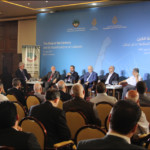
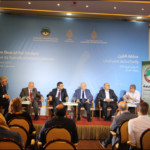
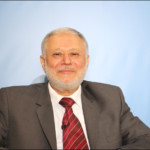
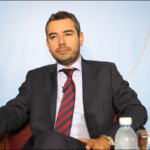

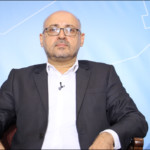
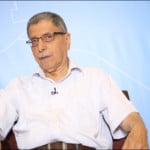
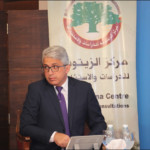
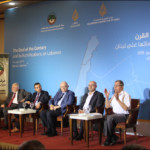
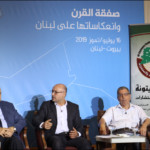
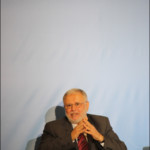
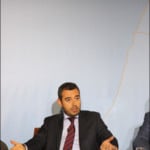
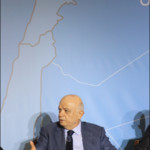
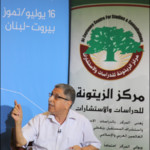
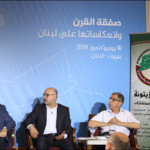

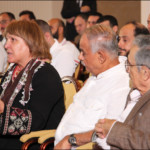
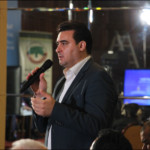
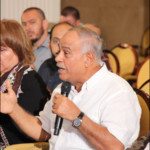
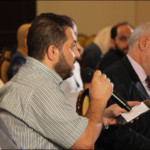
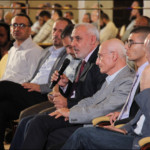
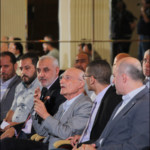

Leave A Comment